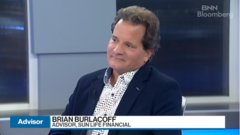Dec 29, 2016
Steve Belisle's Top Picks: December 29, 2016
BNN Bloomberg
Steve Belisle, senior portfolio manager and managing director at Manulife Asset Management
Focus: North American dividend stocks
_______________________________________________________________
MARKET OUTLOOK
Since the election, stock markets have risen quite dramatically on the expectation that Donald Trump’s economic policies would enhance GDP growth and corporate profits and that the OPEC agreement would sustainably boost the oil price. Interest rates have risen significantly on the anticipation that inflation would accelerate for multiple reasons (among them higher deficits and rising import prices due to trade policy). Although we believe Trump’s policies may end up being positive for certain companies and certain sectors, we remain fairly cautious about the broader impacts of his policies, especially given what has been priced-in stock valuations.
There is simply way too much uncertainty about his ability to implement substantial reforms and what these reforms will look like. We are particularly concerned about his changes to trade policy and their implications for the economy. That alone could derail the current economic cycle. Tax cuts could be seen with a positive eye, but in this case, Trumponomics will largely benefit the richer households, which have a lower propensity to consume than middle-class or poorer households, which means that these cuts could be a drag on GDP. On the corporate side, some proposals are creating a lot of uncertainty, such as the non-deductibility of interest- and destination-based taxation.
Infrastructure spending could be positive for many industrial companies, but how is that going to be funded? Are there enough shovel-ready projects to have a meaningful near-term impact on GDP? Are these projects really going to enhance productivity or are they just going to provide only a one-time boost to GDP? And then there are all the other aspects of the Trump program that remain quite uncertain and could have significant impacts on specific industries, such as health care, for example. Financials, especially banks, clearly benefit from the proposed policies, mostly higher interest rates (driven by inflation), potentially faster loan growth and less regulation (allowing for higher dividends and share buybacks), but given the sector’s 35 per cent rise since the election, it’s difficult to argue that this is not largely priced-in already. Financials have indeed been the main contributors to the market rally that started on November 5.
So overall, we believe that financial markets might have been a little too far ahead of themselves and we wouldn’t be surprised to witness a correction in the first half of 2017. We continue to focus on good-quality companies that have solid business models, generate high free cash flows and offer visible growth prospects that do not require an overly optimistic economic scenario to materialize.
We like the pipeline sector at this point because it benefits from rising energy prices as well as a more lenient political backdrop that should allow for easier permitting of new projects. We like energy stocks in general as we believe the fundamentals will continue to improve throughout 2017. We maintain a sizable exposure to financials, but our positioning has shifted from Canadian ones to more U.S.-exposed ones. We are less inclined than we were to own consumer staples stocks given the sector’s valuation and because it generally doesn’t stand to benefit from the current political and macro environment. In this higher interest rate environment, we don’t particularly like the telecommunication companies given their slow-growth prospects, which make them act like bond proxies. We remain nearly unexposed to the materials sectors, and particularly the mining sector since it doesn’t fit very well into our investment process in terms of capital allocation discipline and growth visibility.
TOP PICKS
SECURE ENERGY SERVICES (SES.TO)
We like the company’s asset base, which benefits from increasingly complex drilling and completion techniques and increased water production from the wells as well as increasingly stringent water regulation. The water treatment business provides a lot of stability during downturns as a significant portion of revenues is generated from existing production, instead of drilling. But what many people don’t know is that the company has significant upside from rising oil prices because it sells some of the oil that it separates from the treated water. Valuation is still reasonable and estimates have not gone up yet despite the improving environment. Their two main competitors are in financial difficulty and are unable to invest in growth.
SLEEP COUNTRY CANADA (ZZZ.TO)
There is no sign of share gains slowing against Sears (was at 15 per cent share but now closer to ~10 per cent) and independents (35 per cent market share). Competitors are being aggressive in advertising, as well, but their in-store experience is simply not as good. Sleep Country has been slowly gaining share for the past 22 years so this is not something new and competitors are not suddenly getting better, according to management. Consensus has same-store sales growing at eight per cent next year. If accessory sales (20 per cent of total sales) continues to grow at the 20 per cent rate, that will contribute four per cent growth to same-store sales growth. The new e-commerce website launch in late Q1 2017 could be an interesting catalyst. It should help them address a new market, which consists of the customers that prefer online shopping.
WELLS FARGO (WFC.N)
We like U.S. financials at this point, particularly large-cap money center banks. They benefit on many fronts from recent political change, including rising interest rates, potentially faster loan growth, a lower tax rate and looser regulatory framework. Wells Fargo is a bank that has lagged its peers mostly because of the recent scandal, which we believe will eventually be forgotten by the market. In the meantime, the stock has lost its premium valuation.
| DISCLOSURE | PERSONAL | FAMILY | PORTFOLIO/FUND |
|---|---|---|---|
| SES | N | N | Y |
| ZZZ | N | N | Y |
| WFC | N | N | Y |
PAST PICKS: SEPTEMBER 8, 2016
ELEMENT FINANCIAL (EFN.TO)
Element Fleet has worked pretty well since last show (up 10 per cent+) as they have executed the company split. We still own the stock as we see multiple expansion and sustained earnings growth going forward. We like the strategy of increasingly moving into fee-based value-added services rather than simple interest income. It would benefit from a better economic environment in the U.S.
- Then: $14.23
- Now: $12.32
- Return: +8.69%
- TR: +9.07%
Element Financial (EFN.TO) split into two companies in September 2016: Element Fleet Management (EFN.TO) and ECN Capital Corp (ECN.TO)
Total return for both companies: +9.84%
This is included in the total return average of all three past picks.
STANTEC (STN.TO)
Stantec has also worked very well since the last show (total return of 13 per cent+) as the company stands to benefit from increased infrastructure investments in the U.S. We still hold the stock, but are less inclined to increase our position at this price given the rally.
- Then: $30.71
- Now: $34.26
- Return: +11.55%
- TR: +12.33%
COTT CORP (BCB.TO)
Cott Corp is down -22 per cent since the last show and we still own a small position. I had presented it as a higher-risk value investment and it behaved like one. First, it felt the pressure that impacted most staples stocks since the election. Second, it was particularly impacted by rising interest rates because it’s a company with high debt that is trying to reduce its leverage. The flip side is that operations and fundamentals have not really changed. Management is likely feeling more pressure to sell a non-core business to reduce debt, which would be quite positive for the stock price.
- Then: $19.98
- Now: $15.22
- Return: -23.82%
- TR: -23.43%
TOTAL RETURN AVERAGE: -0.42%
| DISCLOSURE | PERSONAL | FAMILY | PORTFOLIO/FUND |
|---|---|---|---|
| EFN | N | N | Y |
| STN | N | N | Y |
| BCB | N | N | Y |
FUND PROFILE: MANULIFE CANADIAN MONTHLY INCOME FUND
PERFORMANCE AS OF DECEMBER 23, 2016:
- 1 month: Fund 1.10%, Index* 1.00%
- 1 year: Fund 7.26%, Index* 7.72%
- 3 years: Fund 6.56%, Index* 5.44%
* Index: Canadian Neutral Balanced Category
* Not based on reinvested dividends
TOP HOLDINGS AND WEIGHTINGS
- TD Bank: 5.94%
- Royal Bank: 4.80%
- CN Rail: 3.50%
- Scotiabank: 3.11%
- Brookfield Infrastructure Partners: 2.92%
TWITTER: @steve_belisle
WEBSITE: manulifeam.com











